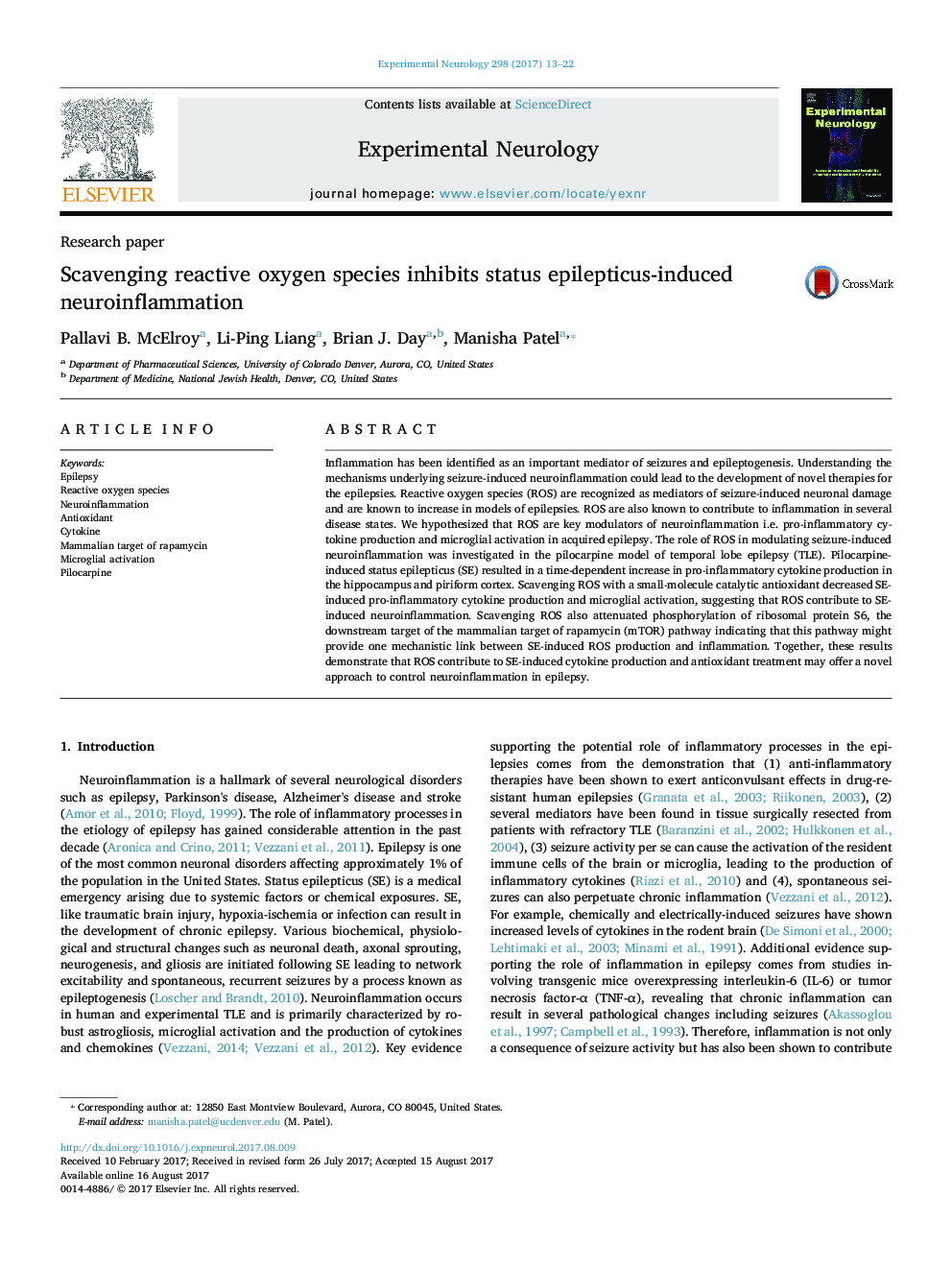| کد مقاله | کد نشریه | سال انتشار | مقاله انگلیسی | نسخه تمام متن |
|---|---|---|---|---|
| 5629302 | 1406410 | 2017 | 10 صفحه PDF | دانلود رایگان |
- Status epilepticus increases proinflammatory cytokines in a time- and seizure-dependent manner.
- Proinflammatory cytokines do not increase during seizure-free latent period.
- A catalytic antioxidant inhibits status epilepticus-induced oxidative stress and neuroinflammation.
- Redox modulation is a novel approach for controlling neuroinflammation in epilepsy.
Inflammation has been identified as an important mediator of seizures and epileptogenesis. Understanding the mechanisms underlying seizure-induced neuroinflammation could lead to the development of novel therapies for the epilepsies. Reactive oxygen species (ROS) are recognized as mediators of seizure-induced neuronal damage and are known to increase in models of epilepsies. ROS are also known to contribute to inflammation in several disease states. We hypothesized that ROS are key modulators of neuroinflammation i.e. pro-inflammatory cytokine production and microglial activation in acquired epilepsy. The role of ROS in modulating seizure-induced neuroinflammation was investigated in the pilocarpine model of temporal lobe epilepsy (TLE). Pilocarpine-induced status epilepticus (SE) resulted in a time-dependent increase in pro-inflammatory cytokine production in the hippocampus and piriform cortex. Scavenging ROS with a small-molecule catalytic antioxidant decreased SE-induced pro-inflammatory cytokine production and microglial activation, suggesting that ROS contribute to SE-induced neuroinflammation. Scavenging ROS also attenuated phosphorylation of ribosomal protein S6, the downstream target of the mammalian target of rapamycin (mTOR) pathway indicating that this pathway might provide one mechanistic link between SE-induced ROS production and inflammation. Together, these results demonstrate that ROS contribute to SE-induced cytokine production and antioxidant treatment may offer a novel approach to control neuroinflammation in epilepsy.
Journal: Experimental Neurology - Volume 298, Part A, December 2017, Pages 13-22
